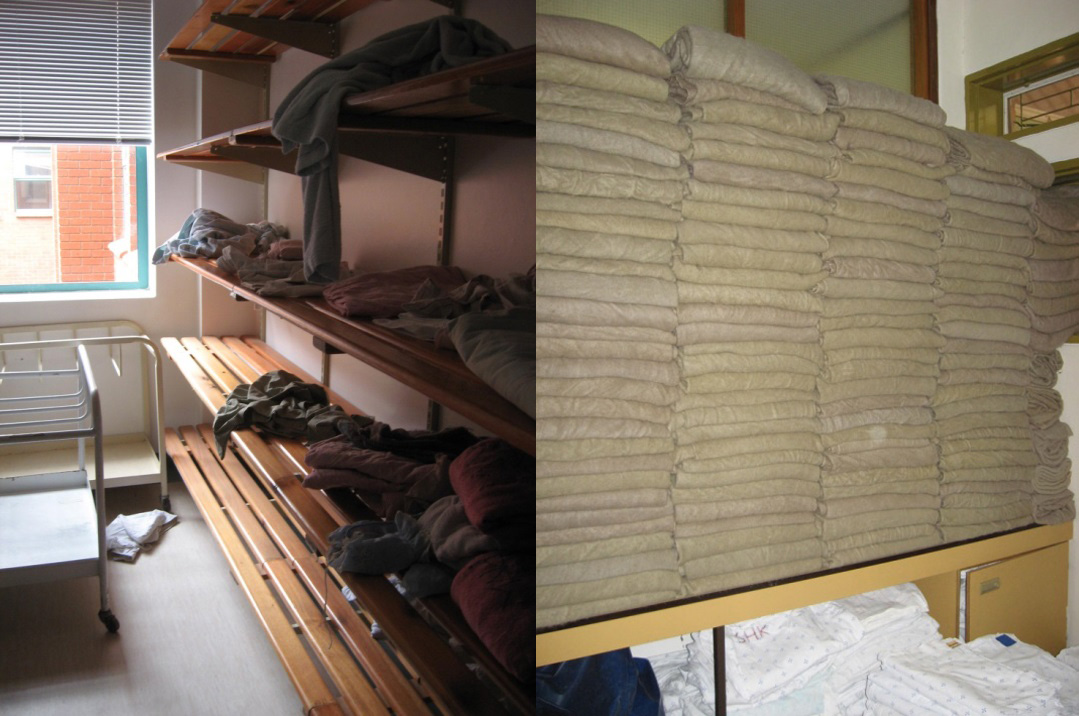Small Management Changes Lead to Big Improvements at Botswana Hospital
Given the fluctuating value of Botswana’s two primary sources of revenue, diamonds and cattle, and the expected decline in donor assistance, the Government of Botswana is actively working to increase efficiencies in its health sector. To save money and maximize its resources, the government designed and implemented outsourcing agreements at seven major hospitals throughout the country for non-clinical services, such as security, cleaning, laundry, and landscaping.
While promising, the outsourcing initiatives were implemented quickly in 2013 – without building the knowledge and skills of either the Ministry of Health or hospital staff to effectively manage the new hospital contracts. Strong contract management requires relationship-building between the hospital and vendor staff, strong communications, apt negotiation skills, and the ability to provide constructive feedback.
To help build those skills, the HFG Project facilitated workshops last year for 40 senior hospital staff and Ministry of Health officials on conflict resolution and negotiation skills as well as designing strong contracts with outside vendors.
Moving Beyond Adversarial Relationships
Recently, HFG caught up with one of the workshop participants to learn how she was putting her new knowledge into practice.
“Until the trainings we didn’t know how to start [managing a contract] . . . now we hold weekly meetings and inspections with our vendors. On our own we are able to perform spot checks and identify areas for the vendors to improve, and we give feedback to the management and the vendors. The vendors receive it well and make the necessary changes,” said Ms. Maureen Maretela, Hospital Manager at S’brana Psychiatric Hospital.
Conflict resolution and negotiation skills enable the hospitals to move beyond adversarial relationships with vendors to positive relationships with constructive two-way communication. Service Level Agreements (SLAs) are contract components that include detailed information on the specific services to be provided, with what frequency, by whom, and monitoring tools and processes to be used to determine that service levels are being met.
While hospitals are working on officially incorporating SLAs into their contracts, many hospitals have already begun applying the underlying principles of performance monitoring from the SLAs into their daily operations. After the workshops, several hospitals developed and started using a checklist of duties that each of the vendors should be performing.
On a regular, often weekly, basis the hospital contract manager and the vendor manager walk around the hospital and review the performance of the vendor in relation to the list. These lists clarify expectations on both the hospital and vendor sides and allow for open and constructive conversations.
Before this, very little communication took place between the hospitals and vendors – and any communication that did take place tended to be adversarial and cause the two sides to become defensive.

Linen supply before (left) and after (right) incorporating conflict resolution and negotiation into the hospital-vendor relationship.
Service Quality is Improving
The vendors also seem satisfied with the clearly delineated list of expectations. Ms. Maretela explains, “Relationships between hospitals and vendors have improved – there was no relationship before.” As a result of their understanding of the hospital’s expectations and open dialogue between the vendors and hospital managers, the “vendors feel empowered and have shown initiative to clean areas that they find are dirty on their own,” Ms. Maretela explained. Before the HFG workshops, she said, these issues would have never been addressed.
The hospitals have also seen service quality improve as a result of these changes. For instance, many hospitals have reported an increase in the quantity and quality of clean linens in the hospital wards following outsourcing. Before outsourcing, having a consistent supply of clean linen was a challenge. “[The cleaning staff] used to clean the offices less than once a week and now they come every day to clean – sometimes it’s too much and I tell them to come back later because I need to work!,” said Tootini Mackenzie, Chief Nursing Officer at S’brana Psychiatric Hospital.



